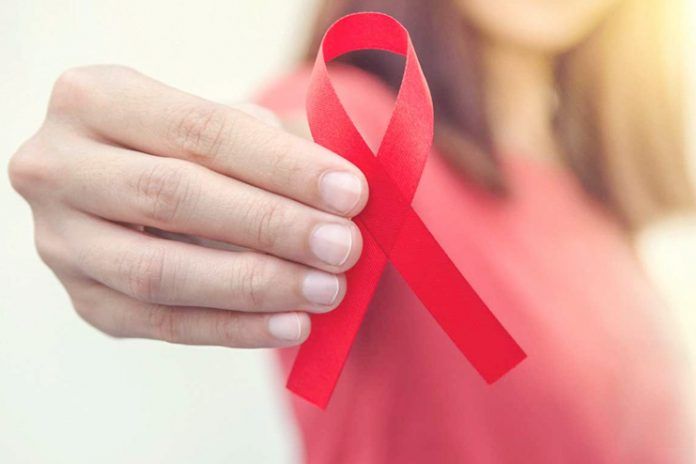Affiliate Disclaimer
Some links in this article are affiliate links. We may earn a small commission if you make a purchase through these links, at no extra cost to you. We only recommend products we find useful to our readersHIV and AIDS have always created a hush hush business when it comes to its possibly effective treatments or even a possibility in that direction. While the majority of HIV positive patients often end up losing their faiths in getting rid of this degrading health ailment, a new study is set to generate a speck of hope in the field of HIV treatment.
Creating a recent breakthrough, a new study (R) has come up with an effective HIV-1 vaccine that has expectedly induced positive immune responses against HIV in healthy adults as well rhesus monkeys. The entirety of the research is being held in sections to help affirm its effectiveness. The first phase of the clinical trial (1/2a) (R) included over 400 healthy adults.
Following the positive outcomes from the first phase, the researchers have initiated the second phase (2b) of the experiment in South Africa on 2600 local women in the area who have a higher risk of acquiring the issue of HIV. This HIV cure via the newly developed novel vaccine is going to be tested out on them to determine the safety as well as the efficacy of the drug.
This newly resourced HIV drug is one out of the five experimental HIV-1 vaccines that have been effectively passed on till the stage of efficacy amidst the timeline of 35 years since this epidemic has come into the spotlight.
The approach to the development of this specific HIV vaccine is comparably a lot different than the previous versions of the drug which had limited exposure to the regions of the HIV virus. These are often referred to as the “mosaic vaccines” which tend to act upon the various HIV strains by combining pieces of the HIV virus in the body.
The leading Professor in the study Professor Dan Barouch, Director of the Center for Virology and Vaccine Research at Beth Israel Deaconess Medical Center and Professor of Medicine at Harvard Medical School, Boston, USA, stated that this specific set of results from the conducted study articulates the function of the specific mosaic Ad26 prime, Ad26 plus gp140 helps induce positive immune responses in HIV vaccine candidate with comparable kinetics., durability, phenotype as well as magnitude. The overall rate of protection that the vaccine provided to the monkeys was noted to be around 67% which is definitely very impressive.
While these results indicate the possible effectiveness of this novel vaccine (at least on monkeys), Prof. Barouch and his team is still very skeptical over the final conclusion because according to them, every step through the result of this vaccine needs to be assessed very cautiously. There are a number of unprecedented challenges that are set to affect the course of development of the vaccine and there are still no affirmations that the drug will specifically aid in fighting the HIV infection in humans. They are still awaiting the test results of the second phase of the research (HVTN705) to determine whether the vaccine is safe for clinical trials on humans or not.
The primary lacking in the process of effective development of a vaccine for HIV cure is the fact that there are very little to no connections between the clinical and the pre-clinical trials. To prevent the shortcomings, Prof Barouch and his team ensured to assess the adenovirus serotype 26 which is based around the HIV-1 vaccine parallelly in both the clinical as well as the pre-clinical trials to deduce which one is optimal vaccine for HIV AIDS that could be used in the clinical efficacy trials.
The study was conducted amidst 393 healthy individuals in between the age of 18-50 years from around 12 clinics based around East Africa, Thailand, South Africa and parts of United States of America in between the months of February and October, 2015. These volunteers were randomly administered with either of seven HIV vaccines or a placebo mimicking the similar properties. Over a course of 48 weeks, the volunteers were administered with four different types of HIV vaccines.
The entire process was conducted in three distinct stages – the stimulation, boosting followed by recording of the final results.
Stimulation – in order to prime an initial immune response, the volunteers were administered with an intramuscular injection of the Ad26 mosaic which was developed from several HIV strains and successfully transferred using a non-replicating common cold virus as a vector. The volunteers again received the same vaccine 12 weeks later from their first shot.
Boosting – in order to boost the response, the volunteers were then administered with double the dosage in the 24 and then 48 weeks mark with a combination of the similar Ad26 mosaic strain. They also received different vaccine like the Modified Vaccinia Ankara (MVA) either with or sometimes without the doses of the clade C HIV gp140 envelope protein which even had an aluminium adjuvant in it.
Finally, following the process of stimulation and boosting, it was concluded that the administered vaccine regimens have the capability of inducing anti-HIV responses in the healthy volunteers and didn’t necessarily induce any kind of side effects and was well tolerated. The most that were noticed were a few grade 3 adverse implications like that of nausea, diarrhea and abdominal pain with any further adverse grade 4 events.
Keeping aside these clinical trials, the researchers also focused on the immunogenicity as well as the protective efficacy of this administered Ad26 mosaic vaccine on 72 rhesus monkeys to test out its proficiency against the simian-human immunodeficiency virus (SHIV) which is similar to what HIV is in humans. The results in both the traits and strain were tested out to impact positive results in both humans as well as monkeys which are what is expected to improve the course of HIV treatment in the HIV positive patients in the near future.


















